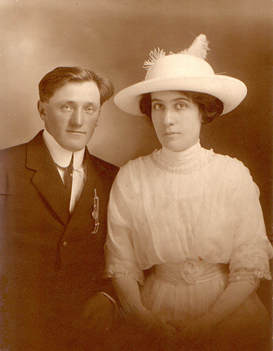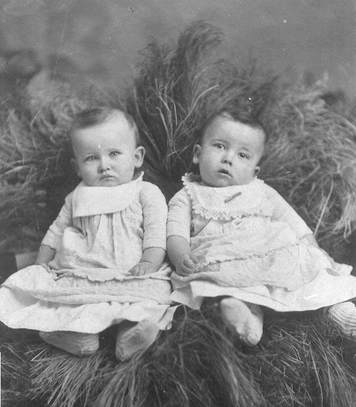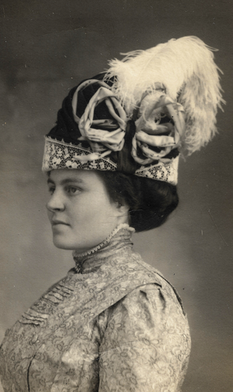|
Well this past week has been a tough one for friends, one lost a mother and another a husband. And while they were at different stages in their lives, one was in her eighties while the other mid-fifties, the loss is still keenly felt. The reason I bring this up was because of their obituaries. Both were eloquent and made me wish that I’d known them better. I admire people who can write these tributes amid their grief. And it made me think about each of us and how it is important to get some words on paper so that we and our loved ones are not just names with dates on someone’s family tree. Here are some ideas to get you started. There are many books and articles that talk about how to write. I think there are two big hurdles that we face when writing…whether it is for a novel or for a family history or a memoir:
This leads to the other writing blocker…being hyper critical of what you’ve written. Nothing taps down creativity like that inner voice that is ready to critique before you’ve written a word! We all have those inner voices; the key is to let them yak but write anyway. Pretend you’re talking to a grandchild or a good friend. Write authentically; write like you’re speaking to them. Your family will appreciate “hearing” your voice through your written words. If you’re not ready to do your own stories, think about a relative or friend that you were close to and want to make sure that their life story isn’t forgotten. It might be easier to start that way. Another option is to make a list of attributes and snippets of information about a person. I didn’t know my one set of grandparents well because they passed before I was born/when I was young. But I asked older relatives about them. Here’s an example: Grandpa K: --rolled his own cigarettes and then commenced to some good story telling. --Liked to treat the little kids in the family to ice cream when they went to a nearby town. --Loved to read western magazines in an old black recliner. --took the little boys fishing in the summer, rowing the boat in the lake. Grandma K: --loved to read—she was a schoolteacher before she married. --with eleven children, she was good at sewing and remaking clothing for hand-me-downs. --made braided rugs and knit washcloths. See. Nothing fancy but don’t you feel like you know a little bit about them? Despite having eleven kids, they found time to do fun things with them. And as avid readers, it’s not surprising that they sent their daughters to the local secondary college in the 1930s—education was important to them. Here are some more ideas for getting started. In the January/February issue of FamilyTree Magazine, Richard Campbell’s article “The Gift That Keeps on Giving” provides great ideas on how to write an autobiography, choosing among 10 life-story themes. He has great ideas for meaningful times to get you started. You can learn more about Richard and his book about writing here. The FamilyTree Magazine also has several articles on storytelling that might be of interest to you. Four Reasons Not to Write Down Your Life Story Writing Your Personal History 18 Writing Tips…tell Personal and Family Stories with Confidence As you continue to ponder your 2020 Family History goals, perhaps carve some time to jot down a story or two each month. Worry about editing and compiling until later if that part is stressful to you. Enjoy reliving fun moments and ponder the sad ones that are important to share. And if you’re just not up to writing quite yet, then read other memoirs and historical writings. You’ll get ideas for your own work and they just might inspire you to start yours! Happy Writing! “Memoir isn’t the summary of a life; it’s a window into a life, very much like a photograph in its selective composition. It may look like a casual and even random calling up of bygone events. It’s not; it’s a deliberate construction.” --Williams Zinsser “You own everything that happened to you. Tell your stories. If people wanted you to write warmly about them, they should have behaved better.” --Anne Lamott
0 Comments
Leave a Reply. |
AuthorWith a lifelong passion for genealogy and history, the author enjoys the opportunity to share genealogy tidbits, inspiring others to research and write their family story. Archives
July 2024
Categories |




 RSS Feed
RSS Feed